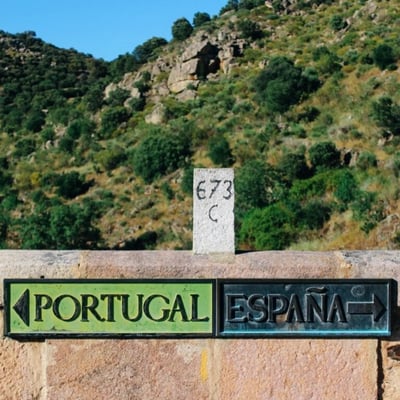1
00:00:03,116 –> 00:00:05,338
O João quer ser famoso.
{{João wants to be famous.}}
2
00:00:05,338 –> 00:00:07,731
Como é que ele se vai tornar famoso?
{{How is he going to become famous?}}
3
00:00:07,731 –> 00:00:09,105
Ainda não sabe.
{{He doesn’t know yet.}}
4
00:00:09,105 –> 00:00:12,363
Mas ser famoso é muito importante para ele.
{{But being famous is very important to him.}}
5
00:00:12,363 –> 00:00:16,705
Ele é um pouco dramático e gosta da atenção de outras pessoas.
{{He’s a little dramatic and likes attention from other people.}}
6
00:00:16,705 –> 00:00:19,086
Por isso, ele pensa tornar-se ator.
{{So he’s thinking of becoming an actor.}}
7
00:00:19,086 –> 00:00:21,370
Mas ele também quer ser o presidente…
{{But he also wants to be the president…}}
8
00:00:21,370 –> 00:00:22,989
ou, pelos menos,
{{or at least,}}
9
00:00:22,989 –> 00:00:27,899
o jornalista que entrevista o presidente, ao vivo na televisão.
{{the journalist who interviews the president, live on television.}}
10
00:00:27,899 –> 00:00:31,243
A educação é muito importante para o João.
{{Education is very important to João.}}
11
00:00:31,243 –> 00:00:36,493
Ele precisa de estar preparado para qualquer oportunidade que apareça.
{{He needs to be prepared for any opportunity that arises.}}
12
00:00:36,493 –> 00:00:40,220
Ele não quer perder a oportunidade de ser famoso!
{{He doesn’t want to miss his chance to be famous!}}
13
00:00:40,220 –> 00:00:43,039
Por isso, ele estuda muitos assuntos.
{{So he studies a lot of subjects.}}
14
00:00:43,039 –> 00:00:48,116
Ele estuda matemática, ciência, política, história e mais.
{{He studies mathematics, science, politics, history and more.}}
15
00:00:48,116 –> 00:00:50,158
E também pratica desporto.
{{He also plays sports.}}
16
00:00:50,158 –> 00:00:51,042
Quem sabe?
{{Who knows?}}
17
00:00:51,042 –> 00:00:53,530
Talvez venha a ser um atleta famoso.
{{Maybe he’ll be a famous athlete.}}
18
00:00:53,530 –> 00:00:55,358
Ele também estuda arte.
{{He also studies art.}}
19
00:00:55,358 –> 00:00:59,154
Ele sabe que apenas os melhores artistas são famosos.
{{He knows that only the best artists are famous.}}
20
00:00:59,154 –> 00:01:01,873
E ele não é muito bom artista.
{{And he’s not a very good artist.}}
21
00:01:01,873 –> 00:01:05,594
Como tal, tem lições todos os dias.
{{As such, he has lessons every day.}}
22
00:01:05,594 –> 00:01:08,247
Ele também estuda oito línguas.
{{He also studies eight languages.}}
23
00:01:08,247 –> 00:01:12,676
Ele quer ser fluente no máximo de línguas possível.
{{He wants to be fluent in as many languages as possible.}}
24
00:01:12,676 –> 00:01:17,954
Desta forma, ele fica pronto para oportunidades internacionais.
{{This way, he is ready for international opportunities.}}
25
00:01:17,954 –> 00:01:23,806
Os professores do João dizem que ele precisa de se especializar em algo.
{{João’s teachers say he needs to specialize in something.}}
26
00:01:23,806 –> 00:01:30,657
Eles pensam que ele está a ser irresponsável ao estudar tantas disciplinas.
{{They think he’s being irresponsible by studying so many subjects.}}
27
00:01:30,657 –> 00:01:33,447
Querem que ele seja dentista ou engenheiro.
{{They want him to be a dentist or an engineer.}}
28
00:01:33,447 –> 00:01:37,991
Mas, é difícil tornar-se famoso com trabalhos como estes.
{{But it’s hard to become famous with jobs like these.}}
29
00:01:37,991 –> 00:01:42,341
Normalmente, dentistas e engenheiros não são famosos.
{{Usually, dentists and engineers are not famous.}}
30
00:01:42,341 –> 00:01:45,996
O mesmo acontece com economistas e psicólogos.
{{The same goes for economists and psychologists.}}
31
00:01:45,996 –> 00:01:50,449
Ninguém é famoso se não tiver as oportunidades certas!
{{No one is famous unless they have the right opportunities!}}
32
00:01:50,449 –> 00:01:53,776
Por isso, o João tem de estar pronto para tudo.
{{So João has to be ready for anything.}}
33
00:01:53,776 –> 00:01:58,742
Os professores dele querem que o João escolha apenas uma profissão.
{{His teachers want João to choose only one profession.}}
34
00:01:58,742 –> 00:02:03,689
Eles dizem, “Escolher apenas uma profissão é menos complicado”.
{{They say, “Choosing just one profession is less complicated.”}}
35
00:02:03,689 –> 00:02:06,976
Também lhe dizem, “Não vais ser famoso”.
{{They also tell him, “You’re not going to be famous.”}}
36
00:02:06,976 –> 00:02:11,872
O João acha que os professores dele precisam de ser mais otimistas.
{{João thinks his teachers need to be more optimistic.}}
37
00:02:11,872 –> 00:02:15,174
Ele sabe como ter sucesso nesta sociedade!
{{He knows how to succeed in this society!}}
38
00:02:15,174 –> 00:02:16,706
Esperemos que sim.
{{Let’s hope so.}}
39
00:02:16,706 –> 00:02:18,440
Boa sorte, João!
{{Good luck, João!}}
 We respect your privacy and have a ZERO TOLERANCE for spam.
We respect your privacy and have a ZERO TOLERANCE for spam.
















Could you explain the meaning of the phrase ‘esta a ser’ in the sentence ‘Os professores acham que o Joao esta a ser irresponsivel’? I think it must meaning something like ‘he is almost irresponsible / bordering on being irresponsible’?
Pat, “está a ser” corresponds to the Portuguese form of the Present Continuous (auxiliary verb estar + preposition a + main verb in the infinitive). So, as the translation shows, it means “he is being irresponsible”. You can read about it here: Present Continuous in Portuguese
É o gerúndio do verbo ser. Eu nunca vi isso em inglês. Acho que os ingleses dizem “He is irresponsible.”
I think you use this kind of form to insist on the fact that , yes, he is irresponsible and it’s a bit irritating (for the one who speaks). So , not neutral.
Bom dia
Patricia
Just to clarify… In English we certainly do say ‘she/he is being irresponsible’. It indicates a temporary state, that the person is currently being irresponsible, implying that this state will end. The phrase ‘she/he is irresponsible’ indicates that this behavior is more permanent, an aspect of the person’s character for example. Anyway, back to Portuguese…
I’m wondering why it is “Também lhe dizem” instead of “Também eles dizem” ?
Thanks!
“Também lhe dizem” means “They also tell him/her/you (sing.form.)” and “Também eles dizem” means literally “They also tell/say”. In Portuguese, for this particular situation, it makes more sense using the “lhe” to specify that they tell HIM. In context it would be understandable that they are speaking to him, but it’s common to include the “lhe”. As for the word “eles” we usually omit it since the form of the verb already implies the subject: “dizem” = “eles dizem”. So “Também lhe dizem” sounds more natural than “Também eles dizem”. Even “Também eles lhe dizem” wouldn’t sound as natural.
Loving practise Portuguese !
Is the sense of “Não falo com os meus primos há muito tempo” similar to “Não falava com os meus primos há muito tempo”? Then, sorry to be pernickety, what about “Não falava … há muito tempo”, or “Não falava … havia muito tempo”? Are some valid, perhaps with nuance varying?
The first sentence indicates that you haven’t spoken to your cousins for quite some time now, whereas the second sentence indicates that you’ve spoken to your cousins recently after a long time not speaking with them.
“Há muito tempo” and “Havia muito tempo” have the same meaning! 🙂
…… não falo com os meu primos há muito tempo……. Should it be “falei” in this case ? Could it be “falei” in this case? Or is it like sometimes for things in future also possible for things in past to use the present?
Olá! “Não falo” is correct in this context, assuming that this past situation remains ongoing at the present time. The simple past “Não falei” does not sound coherent for us when paired with “há X tempo”. You could, however, use the imperfect past, as explained in the comment above.
– “Não falo com os meus primos há muito tempo” -> I have not spoken to my cousins in a long time (and it’s yet to happen again)
– “Não falava com os meus primos há muito tempo” -> I had not spoken to my cousins in a long time (but already did in the meantime)
Muito, muitíssimo obrigado por responder tão rapidamente. Agora percebo.